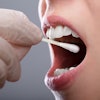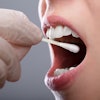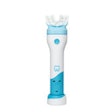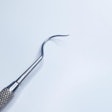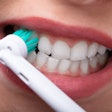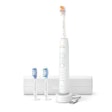
A California appeals court has allowed a class-action lawsuit against Dentsply International that alleges dentists who purchased the company's popular Cavitron ultrasonic scaler were harmed because the device is hazardous for procedures that involve open surgery.
In addition to the California litigation, attorneys have filed separate class-action suits in federal and state courts in Pennsylvania seeking to prove that Cavitron is unsafe even for routine scaling if it uses a public water supply because tubing inside the scaler can't be disinfected.
"If you use it with a closed water system with sterile water, and you treat it regularly with chemicals, then it can be used for routine prophylaxis," said Paul Nelson, an attorney who has worked for firms representing the plaintiffs in all three lawsuits. "But if you do it the way Dentsply told you do to it, you're putting your patients at risk."
“If you do it the way Dentsply told you do to it, you're putting your patients at risk.”
— Paul Nelson, plaintiffs' attorney
Unlike the other two lawsuits, the California case focuses narrowly on the use of Cavitron for any procedures involving surgery. The standards for asepsis are higher in these procedures because of the possibility that bacteria could pass directly into the bloodstream, said Ed Zinman, D.D.S., J.D., another of the plaintiff's attorneys in the case. "The Cavitron is not suitable for surgery because the inner tubing cannot be autoclaved; thus, the output water will not be sterile, irrespective of the input water," he said.
Dentsply spokesperson Michelle Mommert said the company had no comment other than what it has written in public documents. In arguing its case before the California Court of Appeals in San Francisco, Dentsply maintained that the company doesn't bear any responsibility if dentists purchased the Cavitron for procedures involving open surgery, because dentists should have relied on their own judgment -- regardless of what Dentsply itself said in the instructions it packaged with the Cavitron.
The story
The court of appeals gave this summary of the key events:
Starting in 1993, instructions packaged with Cavitron said the device was for "root planing during surgery." In 1997, these instructions were modified to say it could be used for "[a]ll general supra and subgingival scaling applications" and "[p]eriodontal debridement for all types of periodontal diseases."
However, California regulations since 1996 have required dental practitioners to use sterile coolants for surgical procedures, and in 2003 the Centers for Disease Control and Prevention (CDC) issued similar guidelines.
In June 2005, a year after the California lawsuit was filed, Dentsply sent letters to more than 20,000 California dentists notifying them that "conventional ultrasonic scalers do not deliver sterile fluids unless specifically equipped with a sterile water delivery system. Therefore, if in your professional judgment, any dental procedure requires the delivery of sterile fluids, choose a sterile delivery system."
In 2006, the company also began including additional directions with new Cavitrons, warning operators that they are responsible for ensuring asepsis where it is required or deemed appropriate. The directions also began recommending that users flush the water lines with sodium hypochlorite.
The argument
The plaintiffs argue that Dentsply breached its warranty by selling the product for a purpose for which it could not be used. In court documents, Dentsply counters that the dentists bought the Cavitrons before opening the package and reading the directions that describe using it for open surgery; therefore, they could not have been misled into making the purchase by reading the directions.
A California Superior Court in San Francisco judge sided with Dentsply, but in a January 7 ruling, the appeals court overruled the lower court's decision.
In the first place, the appeals court wrote, under California law, "Any affirmation, once made, is part of the agreement" and "Directions and statements and descriptions therein therefore are part of what the buyer bought and the seller ... in essence agreed to sell." In fact, the court pointed out, under Dentsply's line of argument, no warranty would ever be enforceable if it is included in the package along with the product. "Surely this is not the law," the court wrote.
Dentsply has also argued that dentists should have been aware of California regulations requiring the use of sterile water in open surgery. But the court said the company is still responsible for its warranty that the Cavitrons would pose no health risk to patients if used as directed. Even the CDC refers the practitioner to the manufacturer for "the best method for maintaining acceptable water quality," the court pointed out.
And the directions to flush the system with sodium hypochlorite don't excuse the company because the plaintiffs claim that this type of flushing won't eliminate a dangerous biofilm that builds up in the tubing, the court found.
Finally, Dentsply argued that plaintiffs could not bring a class-action lawsuit against it because the circumstance of each dentist buying the product was different, so each dentist's case should be argued separately. But the court found there was enough similarity among dentists who bought Cavitrons that their cases could be combined into a single class-action lawsuit.
The outcome
The appeals court has now sent the case back to the lower court to determine whether the plaintiffs named in the case, Marvin C. Weinstat, D.M.D.; Richard Nathan, D.M.D.; and Patricia Murray, D.M.D., Ph.D., are good representatives of the class of dentists filing the lawsuit. After that technicality, the lawsuit can proceed to trial.
Dentsply may have trouble prevailing because the appeals court has already rejected key elements of its defense.
The plaintiffs are asking that Dentsply warn all Cavitron purchasers not to use the device in oral surgery, recall all Cavitrons, reimburse everyone who bought a Cavitron, and pay punitive damages as well as court costs.
What should you do if you bought a Cavitron for oral surgery? First, don't use it for that purpose, advised Nelson. Second, sit tight. If the lawsuit succeeds, you'll be notified of how to collect your check.

